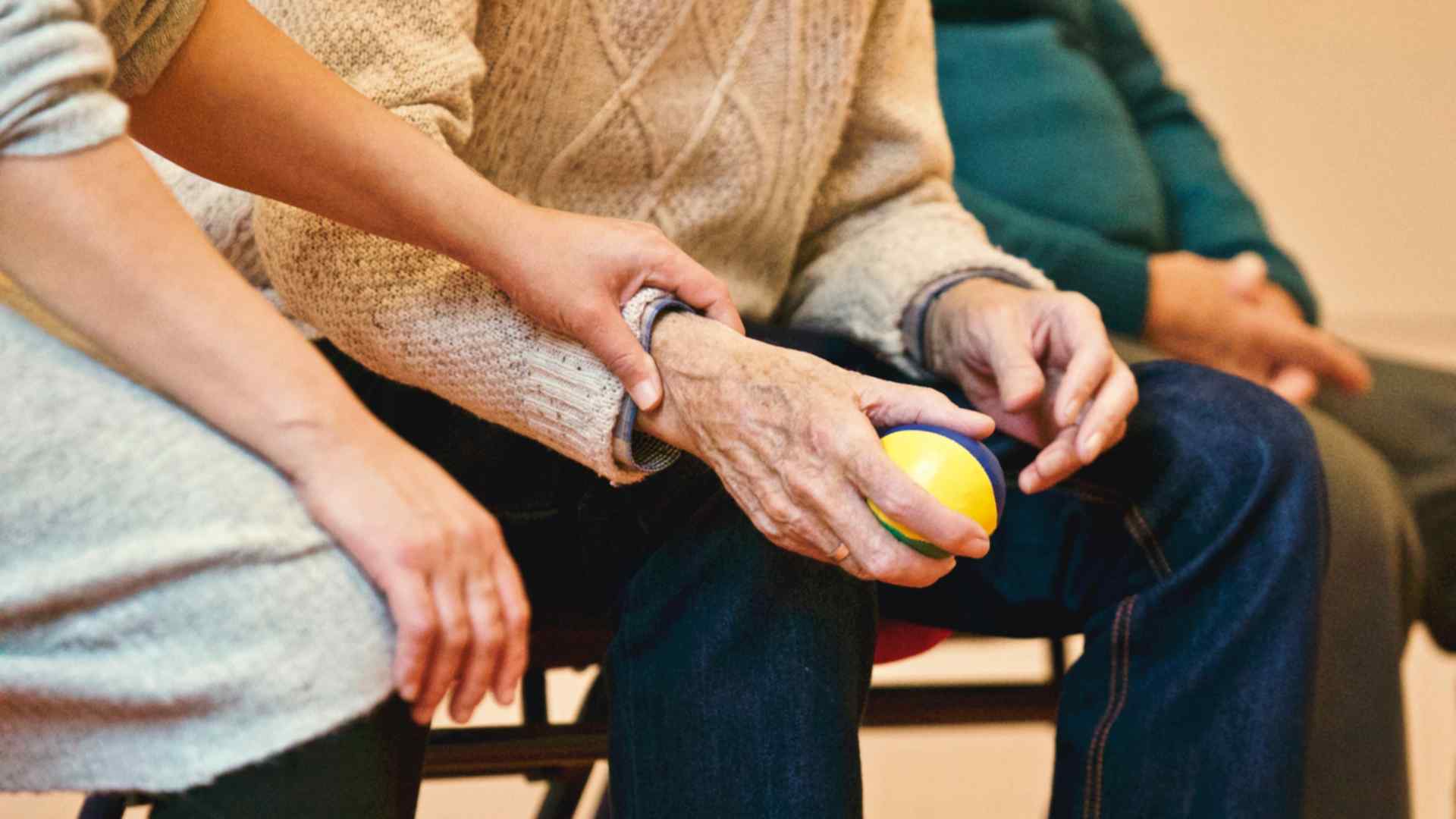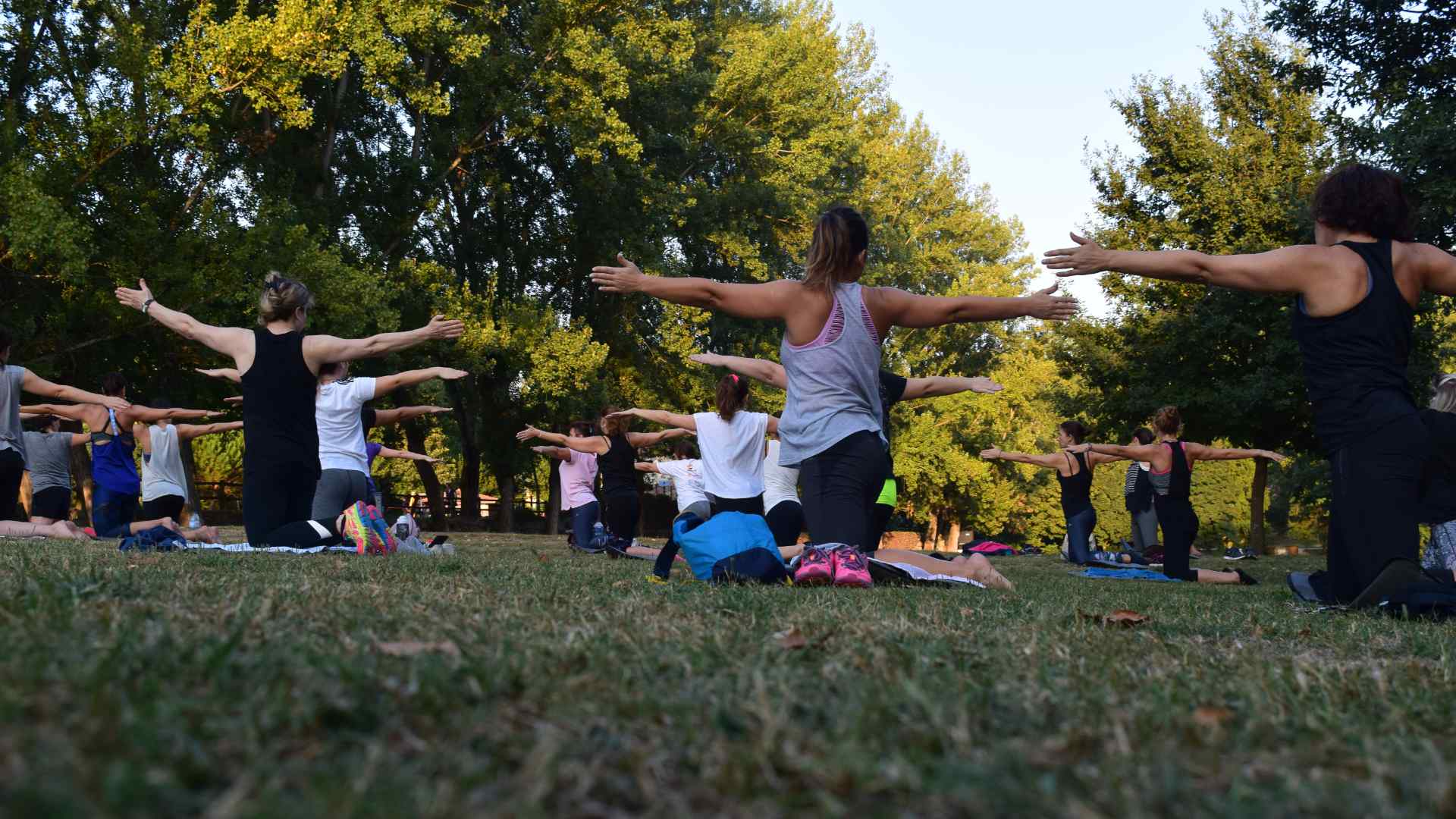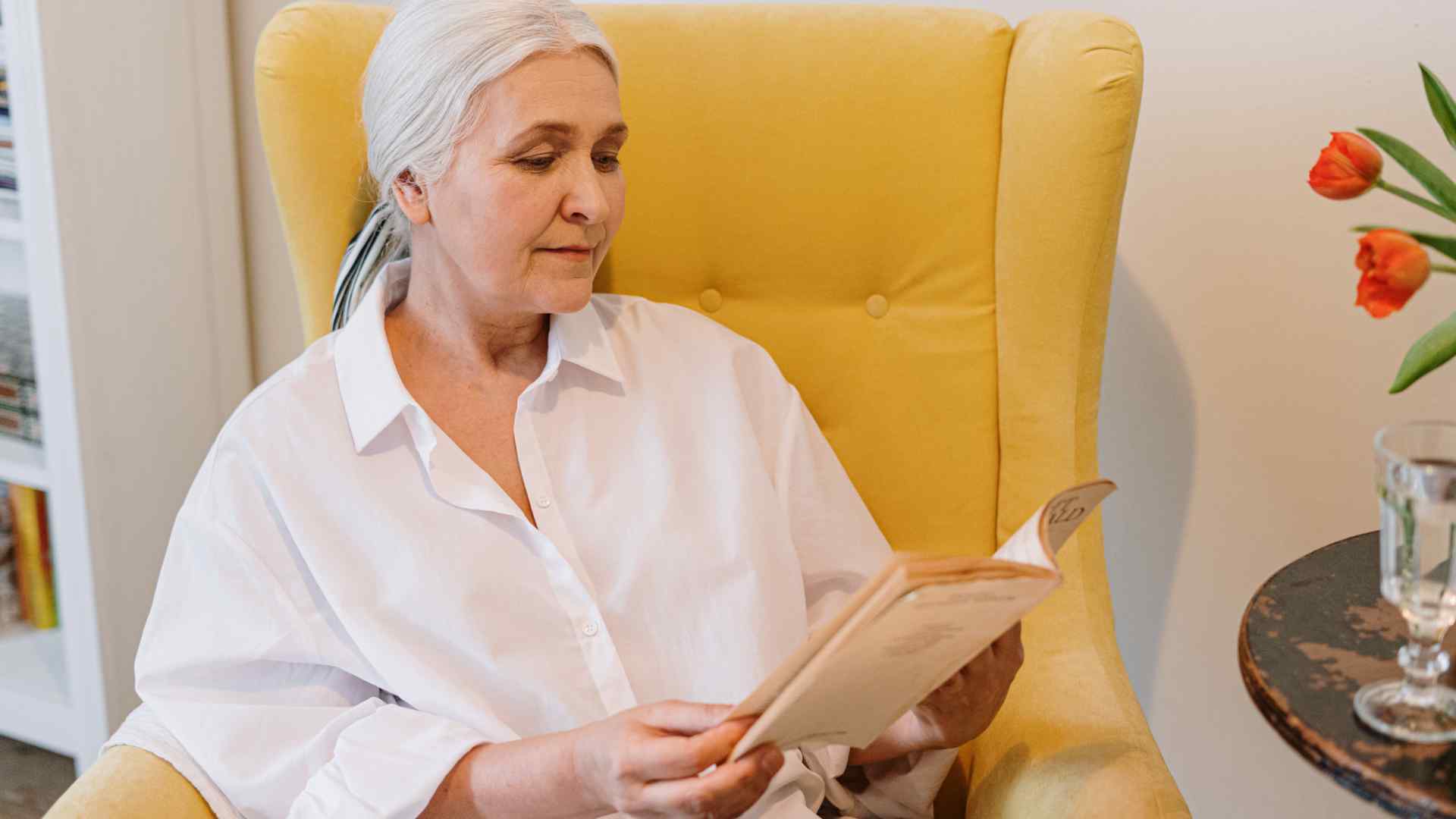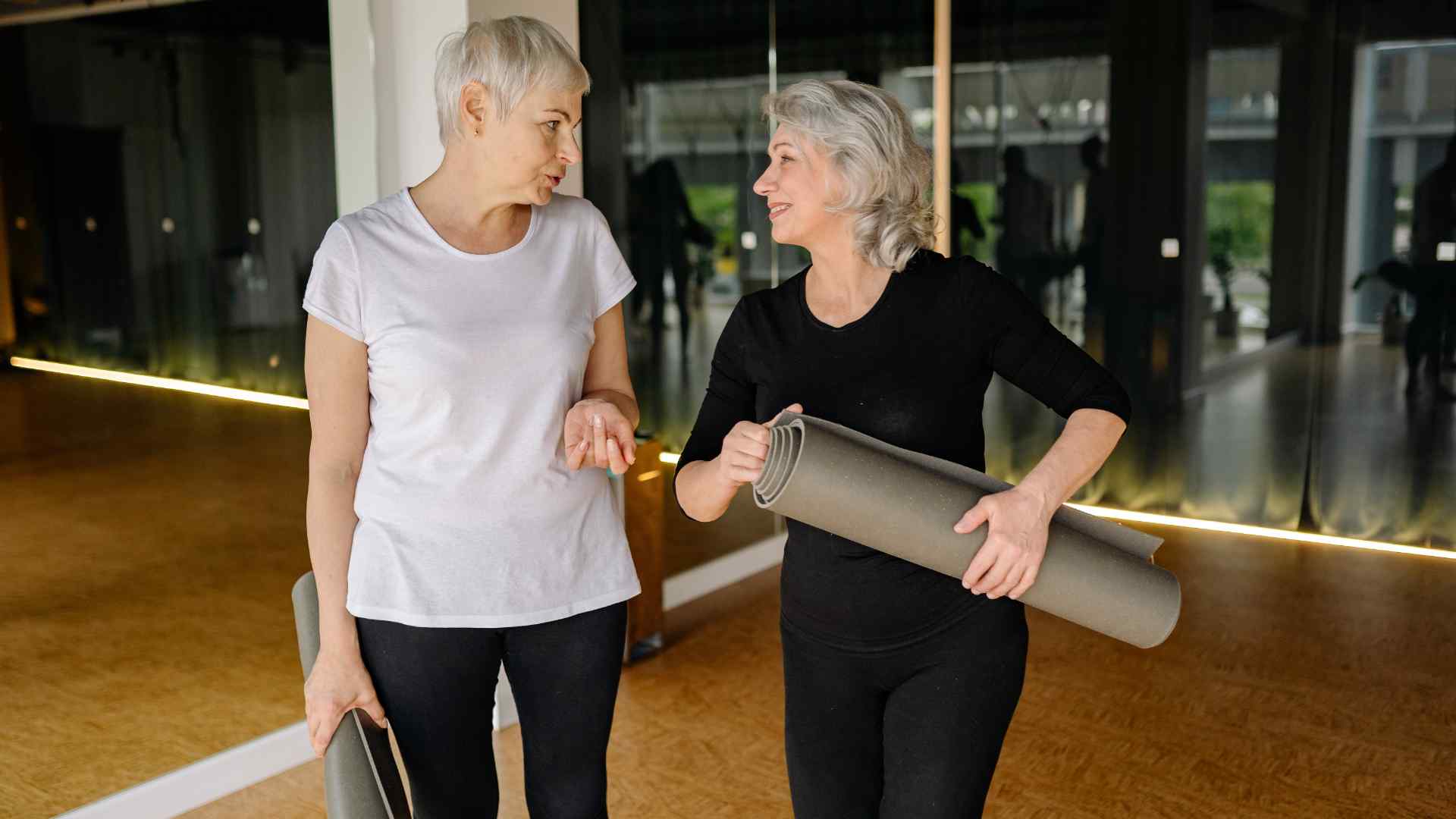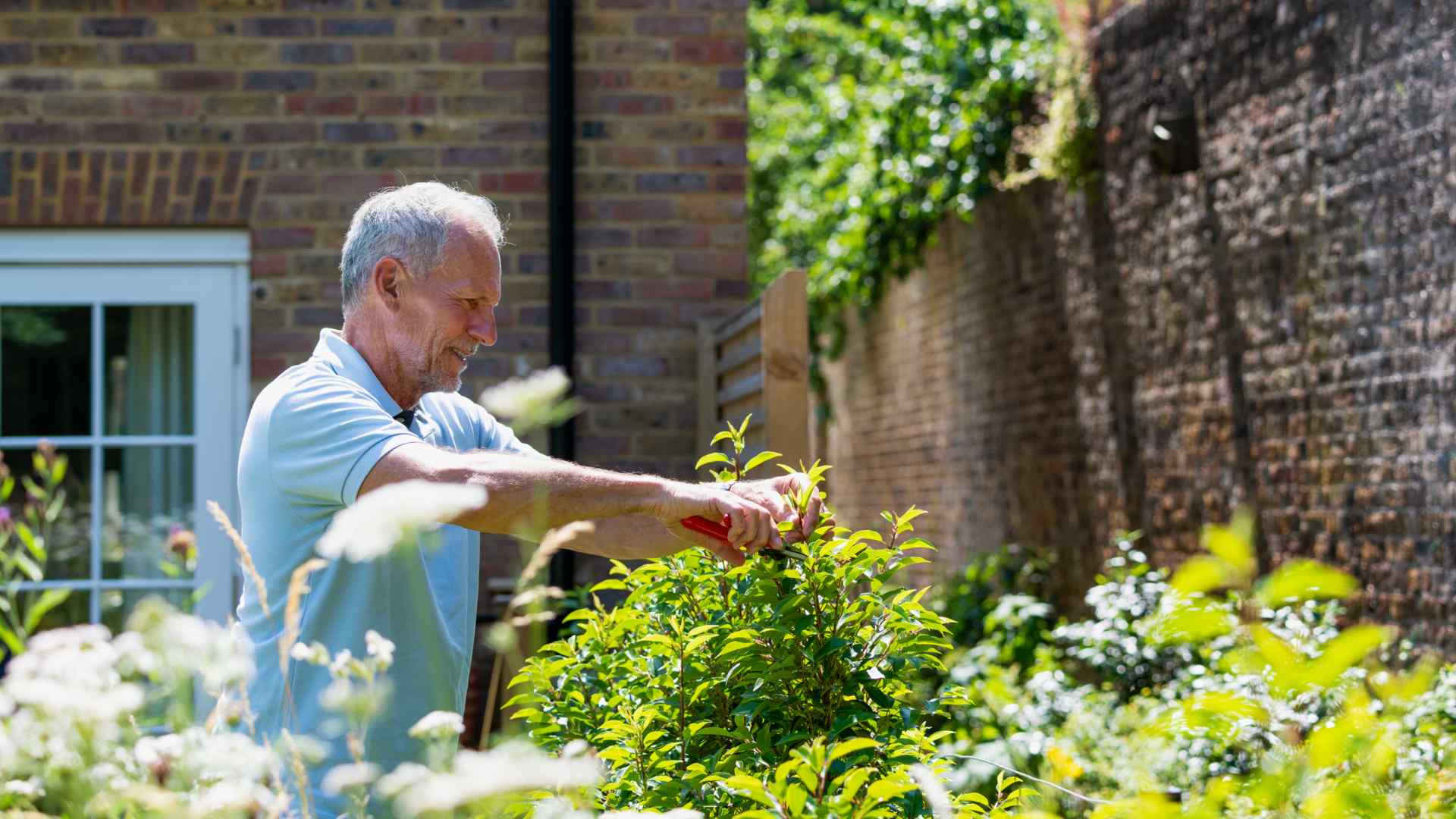
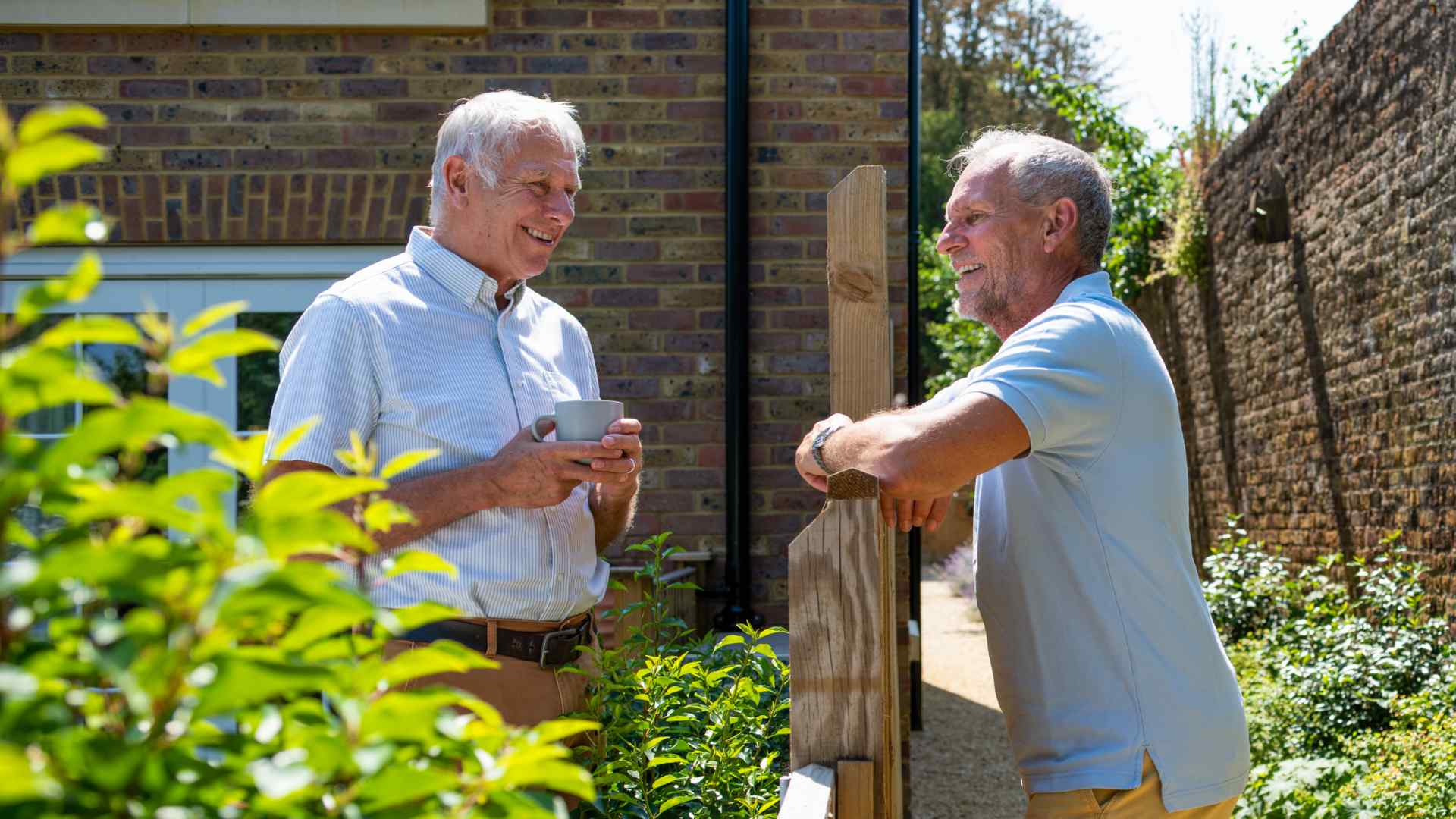
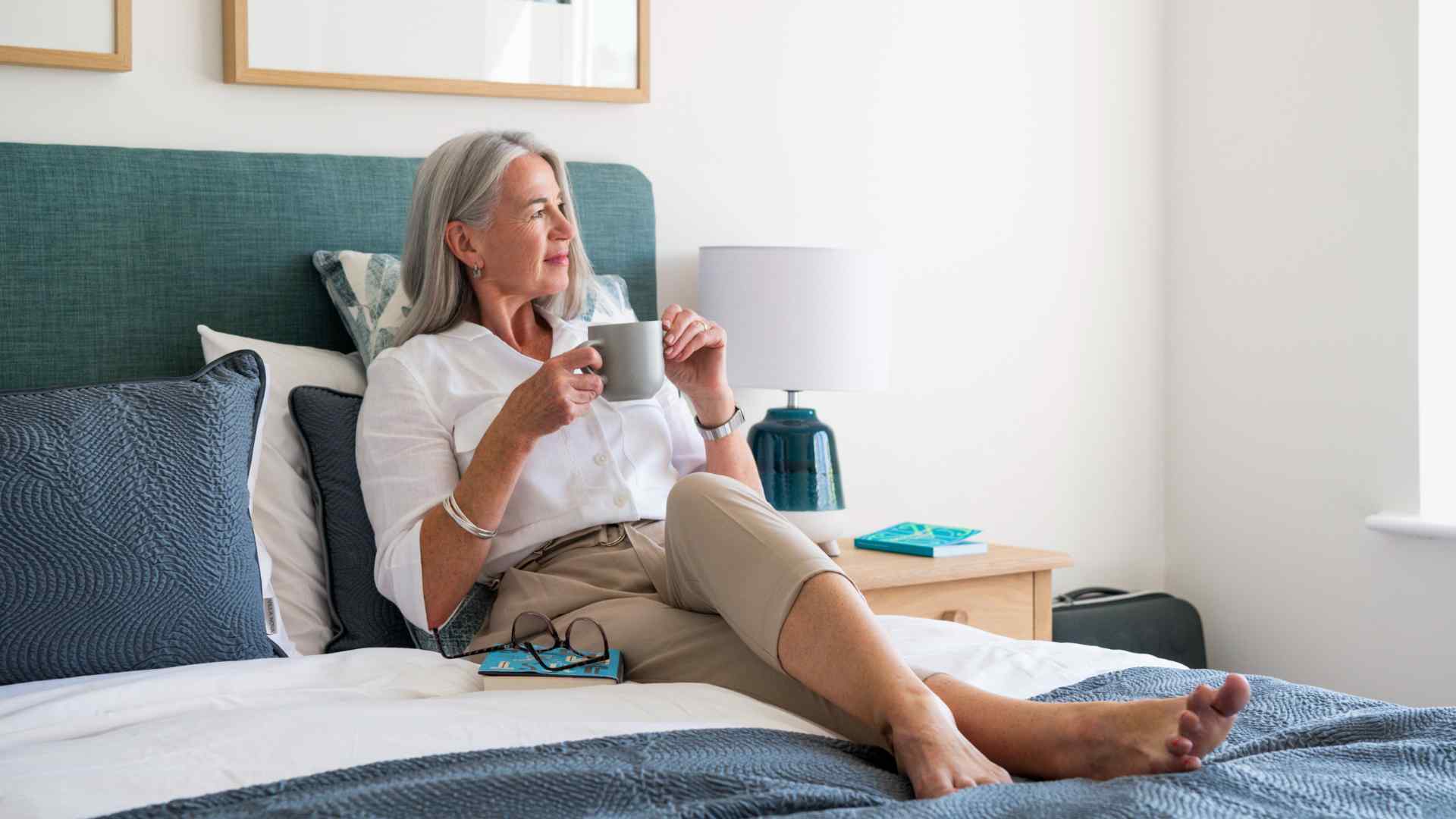
Mental health matters at every stage of life, but retirement brings its own mental health challenges – we have to face loss, adjust to the transition from work to retirement, tackle ill health and face loneliness. Recognising the causes and learning to deal with them can make us happier and healthier, emotionally and physically.
There are so many different situations that have a significant effect on our mental health – and it varies from person to person. Here, we look at a few of the most common situations affecting those of us over the age of 50 and possible ways to help cope with the challenges they bring in terms of our mental health.
If you or someone you care about is struggling with their mental health, we recommend always speaking to a professional. You can find a few of our suggested charities listed at the end of this blog post.
For so many of us, work gives us a sense of purpose and boosts our sense of worth. It can bring friendships, structure our days and give us financial security.
Some of us look forward to retirement when we can travel, take up new hobbies or spend more time doing things we love. For others, retirement can bring a sense of loss and feelings of anxiety and depression.
• If you’ve been used to a routine all your working life, establish a new routine, going to bed and getting up at the same time each day.
• Plan regular activities exercise classes, volunteering, attending classes or courses.
• Make time to socialise – see if there are any local social groups you can join. Many towns provide over 50s coffee mornings or knit and natter groups. Arrange to meet friends or family members once a week. Go for a walk with a friend or neighbour – getting out and about and socialising at the same time.
The death of a loved one – partner, spouse, friend or parent – or even a beloved pet - is devastating and a shock, whether or not it was expected.
It brings a whole range of emotions and can affect you physically. You never get over the loss but, with help, you can learn how to cope with it.
• Take one day at a time. You’ll have good days and bad days but set yourself small, achievable goals each day.
• Make a memory box filled with ‘happy memories’ of whoever you have lost – photographs, letters, poems, notes, their favourite perfume or aftershave. It can help lift your mood.
• Don’t be afraid to cry. When my husband died, I cried all the time and anything would set me off – the verse in a birthday card, his favourite foods in the supermarket, the sight of a cricket team playing on a village green. A very wise woman told me to let the grief out. ‘You won’t cry forever,’ she said. It took time but it was true.
• Let other people know how you’re feeling and when you’re finding it difficult – whether that’s a professional grief counsellor, a close friend or a family member.
• Seek support – there are a whole range of bereavement groups that will provide help and support – and you may be able to meet up with others in the same situation in person or online.
• Take care of yourself – make sure you’re getting enough sleep, eating well and avoiding alcohol which tends to make it more difficult to cope with feelings. Make sure you exercise – going out for a walk in the countryside can be very therapeutic – and especially if you go for a walk with a friend.
Retirement, bereavement, becoming a carer or just living alone can themselves result in a feeling of loneliness – which can lead to depression.
It’s possible to feel lonely even if we don’t live alone – and if this is the case, it’s important to find new friends, new connections and have new interests you can share or talk about when you return home.
• Think about joining a local group – most areas have friendship groups aimed at the over 50s and there are plenty of organisations that welcome new members – for example, the Women’s Institute, the U3A.
• Reach out to neighbours or call friends and family.
• Consider moving to a retirement development where you’ll be part of a community of like-minded people and will certainly develop a new social life. One Beechcroft homebuyer commented that he’d spoken to more people in one week in his new home than he had in nine years in his previous home.
• Think about acquiring a pet. Dog owners are likely to take their pet for a walk every day which adds exercise to your daily routine – and you’ll soon make friends with other dog-owners. Pets of all kinds provide companionship and provide a sense of security. Research also shows that pet ownership reduces anxiety and boosts self-confidence.
Those of us aged over 50 have become the ‘sandwich generation’ – caring for ageing parents or elderly relatives whilst still helping our children and grandchildren.
At the same time, many of us are expected to work longer – or need to work longer because of the rising cost of living. Caring for someone can be a positive experience – making you feel wanted and needed and giving you a real sense of satisfaction. On the flip side, it can lead to exhaustion, exasperation, stress, anxiety and depression. The most important thing if you are a carer, is to make time to care for yourself – although that’s not easy to do.
• Share how you feel – talk to someone, perhaps a family member or a trusted friend or speak to someone from an organisation like Carers UK.
• Find ways to stay organised - if you have a schedule/daily routine, you will feel more in control. Keep all information and medication in one place. Plan time for yourself and, if you can, organise someone to sit with your elderly parents whilst you take a break.
• Do something for yourself on a regular basis - plan an exercise class, a massage/reflexology, a country walk, coffee or lunch with a friend, even a long soak in a bath or an hour spent reading a book can make you feel so much better.
• Look after your physical health – eat well, try to get enough sleep, fresh air and exercise.
• Don’t be too hard on yourself – it’s not easy looking after an elderly relative or an adult child with mental health challenges. There are going to be times when you feel guilty for your reactions – it’s normal.
Poor physical health can affect mental well-being and quality of life.
It can make it difficult to do the things you enjoy and this can make you feel depressed and anxious. Medication can also have side effects – making us feel tired, unwell and depressed.
• If you’re on medication that may be causing a problem, do see your doctor or talk to your pharmacist.
• Make sure you get some exercise – if you’re not very mobile, look for chair-based classes. Seated yoga is an excellent way to keep fit – and, nowadays, there are online classes you can join if you can’t get out.
• Ask friends in for morning coffee or afternoon tea – just sitting and chatting can do wonders for your mental health.
• Look after the aspects of your physical well-being that you can control – eating a balanced diet, drinking plenty of water and getting enough rest will ensure you’re better able to cope with your physical challenges.
There are a number of helplines and charities in ths UK, each created specifically to support you with your mental health.
"Age UK is the country's leading charity dedicated to helping everyone make the most of later life. We provide companionship, advice and support for older people who need it most."
"Grief can be overwhelming. You don't have to deal with it alone."
"Caring for a family member or someone else close to you? We’re here for unpaid carers with expert information, advice and support, and also campaign to make life better for carers."
"We won't give up until everyone experiencing a mental health problem gets support and respect."
"The Loss Foundation is the only UK charity dedicated solely to providing bereavement support following the loss of a loved one to cancer, whether that be spouses, family members, friends or colleagues. We also offer specific Covid-19 loss support."
There is no doubt that belonging to a supportive community of friendly like-minded people has a positive impact on physical and mental health.
29 May 2025
There are at least 12 different terms to describe retirement housing including extra care housing, housing with care, independent…
Read more9 May 2025
If you enjoy travelling within the UK, there are plenty of financial benefits related to retirement. It’s easy to leave the car…
Read more7 April 2025
From beautiful landscapes to excellent transport links, Kent offers the best of both worlds - convenience and charm - along with…
Read more